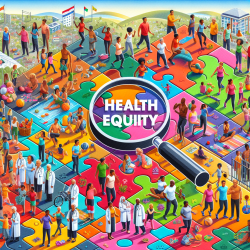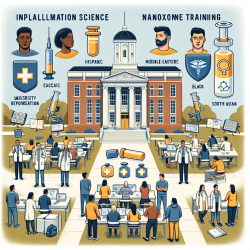Introduction
In the realm of global health, the governance of abortion and the implications of policies like the Global Gag Rule have far-reaching impacts. As practitioners in the field of speech-language pathology, understanding these dynamics can enhance our approach to service delivery, especially in online therapy settings like those provided by TinyEYE. This blog post delves into the findings from the research article "From bad to worse: global governance of abortion and the Global Gag Rule" by T. McGovern et al., and discusses how practitioners can leverage these insights to improve their skills and outcomes for children.
Understanding the Global Gag Rule
The Global Gag Rule, formally known as Protecting Life in Global Health Assistance (PLGHA), is a policy that restricts U.S. global health assistance to foreign NGOs that perform or promote abortion. This policy has been shown to have significant implications on global health governance, particularly in the areas of sexual and reproductive health and rights (SRHR). The research highlights that the rule has led to decreased stakeholder coordination, reduced access to contraception, and weakened health system functioning, all of which are associated with adverse maternal health outcomes.
Implications for Practitioners
For practitioners, particularly those working in online therapy services, understanding the broader context of health policies like the Global Gag Rule can inform our practice in several ways:
- Enhanced Awareness: By being aware of global health policies and their implications, practitioners can better understand the challenges faced by clients, especially those from regions affected by such policies.
- Advocacy and Education: Practitioners can play a role in advocating for comprehensive health education and services, ensuring that clients have access to accurate information and resources.
- Data-Driven Decisions: Utilizing data from research studies can help practitioners make informed decisions about therapy approaches and interventions, leading to better outcomes for children.
Encouraging Further Research
The research by McGovern et al. underscores the need for continued research and dialogue around global health governance and its impact on SRHR. Practitioners are encouraged to engage with the latest research, participate in discussions, and contribute to the body of knowledge in this area. By doing so, we can collectively work towards improving health outcomes and ensuring that our practices are informed by the latest evidence.
Conclusion
Understanding the global governance of abortion and the implications of policies like the Global Gag Rule is crucial for practitioners in the field of speech-language pathology. By leveraging insights from research, practitioners can enhance their skills, advocate for comprehensive health services, and make data-driven decisions that lead to better outcomes for children. To delve deeper into the findings of the research, practitioners are encouraged to read the original research paper by following this link: From bad to worse: global governance of abortion and the Global Gag Rule.










